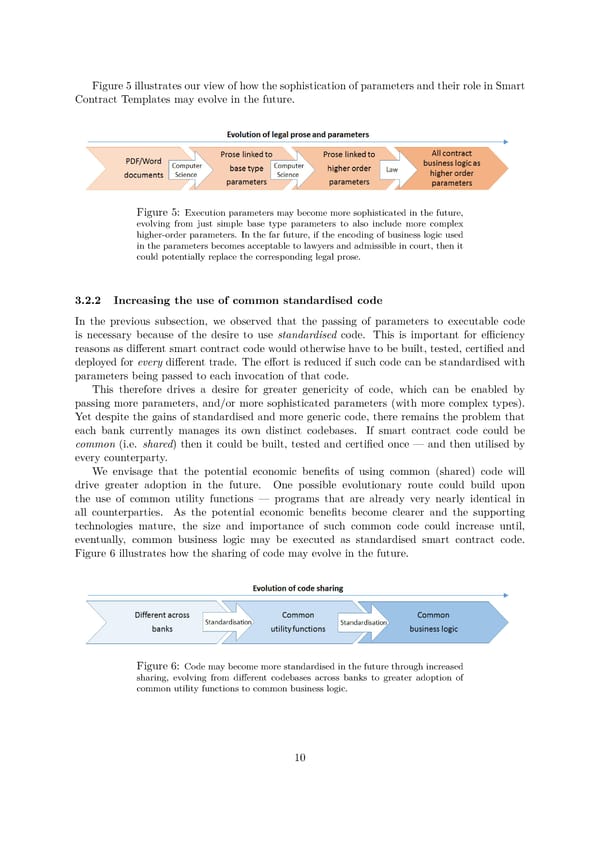Figure 5 illustrates our view of how the sophistication of parameters and their role in Smart Contract Templates may evolve in the future. Figure 5: Execution parameters may become more sophisticated in the future, evolving from just simple base type parameters to also include more complex higher-order parameters. In the far future, if the encoding of business logic used in the parameters becomes acceptable to lawyers and admissible in court, then it could potentially replace the corresponding legal prose. 3.2.2 Increasing the use of common standardised code In the previous subsection, we observed that the passing of parameters to executable code is necessary because of the desire to use standardised code. This is important for efficiency reasons as different smart contract code would otherwise have to be built, tested, certified and deployed for every different trade. The effort is reduced if such code can be standardised with parameters being passed to each invocation of that code. This therefore drives a desire for greater genericity of code, which can be enabled by passing more parameters, and/or more sophisticated parameters (with more complex types). Yet despite the gains of standardised and more generic code, there remains the problem that each bank currently manages its own distinct codebases. If smart contract code could be common (i.e. shared) then it could be built, tested and certified once — and then utilised by every counterparty. We envisage that the potential economic benefits of using common (shared) code will drive greater adoption in the future. One possible evolutionary route could build upon the use of common utility functions — programs that are already very nearly identical in all counterparties. As the potential economic benefits become clearer and the supporting technologies mature, the size and importance of such common code could increase until, eventually, common business logic may be executed as standardised smart contract code. Figure 6 illustrates how the sharing of code may evolve in the future. Figure 6: Code may become more standardised in the future through increased sharing, evolving from different codebases across banks to greater adoption of common utility functions to common business logic. 10
 Position Paper | Smart Contract Templates Page 11 Page 13
Position Paper | Smart Contract Templates Page 11 Page 13